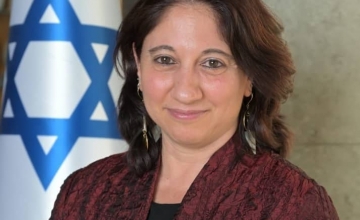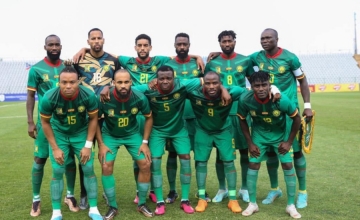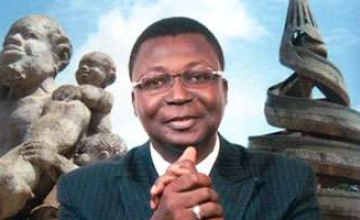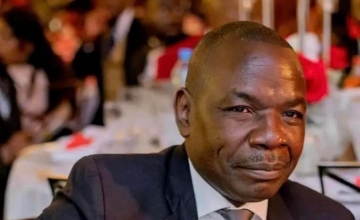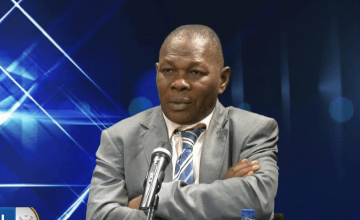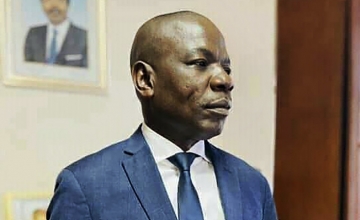
They write: "The permanent delegation of signature is not a new practice carried out by the President of the Republic since his accession to the Supreme Magistracy. Recently with the signing of Decree № 2019/043 of 05 February 2019 conferring permanent delegation of signature to Mr. NGOH NGOH Ferdinand Minister of State Secretary General (SG) at the Presidency of the Republic, lots of commotion is felt leaving the ordinary Cameroonian confused and worried as to the diverse views, opinions and the politicization of this familiar and constitutional act reached within the confines of the laws governing Cameroon.
It becomes even more curious when we can recall that more than half a decade before, Decree № 2011/422 of 14 December 2011 was signed by the President of the Republic conferring still to Mr. NGOH NGOH Ferdinand then Minister SG at the Presidency of the Republic similar permanent delegation of signature which tends to draw sundry views and particular interest today.
The different questions raised as to this Decree does not just question the constitutionality of the Decree but equally questions if the President of the Republic still governs Cameroon and most importantly a possible succession coup.
The permanent delegation of signature to start with is not an unprecedented act posed by the acting President of Cameroon. Indeed, we can recall Decree № 75/533 of 17 July 1975 signed by President EL HADJ AHMADOU AHIDJO in which this decree gave permanent delegation of signature to Mr. EBOUA Samuel, SG at the Presidency of the Republic then, to sign on behalf of the Head of State every document and correspondences relative to current administrative affairs.
The permanent delegation of signature in principle is a regulatory prerogative conferred to the President of the Republic as it is the case with articles 8(8), 8(9) and 10 of the Cameroon constitution of 14/04/2008 modifying and completing certain dispositions of the 18/01/1996 constitution which revised the 02/06/1972 Constitution.
This is an act defined within the confines of administrative acts. The Decree in question (Decree № 2019/043 of 05 February 2019) even states it clear in its articles 1 & 2 that the SG signs on behalf of the Head of State, documents, correspondences relative to current administrative affairs and regulatory acts.
This act in no way signifies delegation of power which can be understood as the transfer or sharing of power and authority from a person or organ to another. In this case the direct responsibility of the person or organ can be questioned.
It is in this light we can recall the permanent delegation of signature since 1984 with Decree № 84/042 of 13 February 1984 giving permanent delegation of signature to Mr. ABOUEM a TCHOYI David SG at the Presidency of the Republic, Decree № 85/1199 of 30 August 1985 giving Mr. Ferdinand Leopold OYONO SG at the Presidency of the Republic permanent delegation of signature, Decree № 89/758 of 21 April 1989 giving Mr. AKAME MFOUMOU Edouard SG at the Presidency of the Republic permanent delegation of signature, Decree № 90/1363 of 21 Sept 1990 giving Mr. SADOU HAYATOU SG at the Presidency of the Republic permanent delegation of signature, Decree № 97/220 of 11 Dec 1997 giving Mr. MARAFA HAMIDOU YAYA SG at the Presidency of the Republic permanent delegation of signature, Decree № 2002/222 of 30 August 2002 giving Mr. ATANGANA MEBARA Jean-Marie SG at the Presidency of the Republic permanent delegation of signature and Decree № 2006/311 of 25 Sept 2006 giving Mr. ESSO Laurent SG at the Presidency of the Republic permanent delegation of signature.
It is important to recall here that the office of the SG at the Presidency of the Republic is of utmost importance in the accomplishment of the mission assigned to the Head of State.
Decree № 2011/412 of 09 December 2011 on the reorganization of the Presidency of the Republic holds in its article 2(2) that the SG is in charge of relation between the Presidency of the Republic and the Government.
In its article 2(3), the SG ensures amongst others liaison between the Executive and the different constitutive organs of the State. But equally and more important in article 3(1) of this same Decree № 2011/412 of 09 Dec 2011, the SG assists the President of the Republic in the accomplishment of his mission.
The magnitude of this office comes to confirm even the promotion of the SG to the rank of Minister of State with the last Governmental appointment of 4th Jan 2019 making administratively appropriate a suitable ranking in the accomplishment of the tasks assigned to the office of the SG at the Presidency of the Republic.
For the President of the Republic to properly execute his function as Head of State, the constitution of Cameroon provides constitutional and regulatory powers on which his mandate and contract with the Cameroonian people should be judged.
In this light therefore, the President in accordance with article 10(2) can delegate some powers to some of his collaborators like the Prime Minister and other members of Government within the framework of their respective responsibilities.
In accordance with Decree № 2019/043 of 05 Feb 2019 creating this inkling controversy, the President of the Republic didn’t even delegate “powers” but rather signature which limits the SG to administrative acts and still in no way questions the direct responsibility of the SG in missions he accomplishes within the framework of this Decree, but rather the direct responsibility of the President of the Republic who is the sole person responsible before the Cameroonian people.
This Decree № 2019/043 of 05 Feb 2019 in essence only comes in to modify the rank and portfolio of the Minister SG at the Presidency of the Republic to that of Minister of State SG at the presidency of the Republic in continuance with the same delegation of signature he has being enjoying with Decree № 2011/422 of 14 December 2011.
We can further consider article 10(3) which even authorizes the President of the Republic to assign the Prime Minister or any other member of Government if he is temporarily unavailable.
These provisions of the constitution comes to annul any claim defying the constitutionality of Decree № 2019/043 of 05 February 2019 and questioning if the President of the Republic still governs Cameroon. It is equally important to hold that this Decree only remains a decree which cannot defy the constitutional powers of the President of the Republic if we should consider the principle of the hierarchy of norms on which administrative authority and authenticity is ruled.
The question surrounding vacancy and incapacity is clearly defined by article 6(4) of the Cameroonian constitution which holds that, in a case of vacancy, death, resignation of the President of the Republic observed by the Constitutional Council, elections are previewed within 20 or 120 days and the interim is ensured by the President of the Senate who isn’t a candidate in this election.
The constitution provides therefore measures how our State is governed during normal and abnormal periods. In normal periods, the President without any question of constitutionality delegates signature to his collaborators in a bid to effectively and efficiently meet up with his mission.
Equally within abnormal circumstances like those defined in article 6(4) in which Decree № 2019/043 of 05 Feb 2019 has nothing to do with, the appropriate constitutional organs get hold of the situation and implement the adequate constitutional measures previewed in managing such circumstances.
The President of the Republic therefore within the precincts of his responsibility towards the Cameroonian people and in accordance with the constitutional provisions defining his powers and functions as per articles 5, 8, 9 and 10 of the Cameroonian constitution, remains constitutional and legal as to any act taken within the prescriptions of the aforementioned articles. Decree № 2019/043 of 05 February 2019 only comes in to ascertain the essence of the SG’s office whose mission is defined by Decree № 2011/412 of 09 December 2011 on the reorganization of the Presidency of the Republic in its article 2(2,3) and its article 3(1).
The question as to if the President of the Republic is still managing the State of Cameroon only remains political, when we consider the question of transition animating our political scene and the interest different stakeholders within the national and international platforms attach to it.
It is equally important to hold that the commotion this Decree is creating can be attributed to the ties of information technology which is rapidly transforming our “traditional society” into an active android generation which needs to be objectively and constructively checked for the wellbeing of our beloved Nation.







